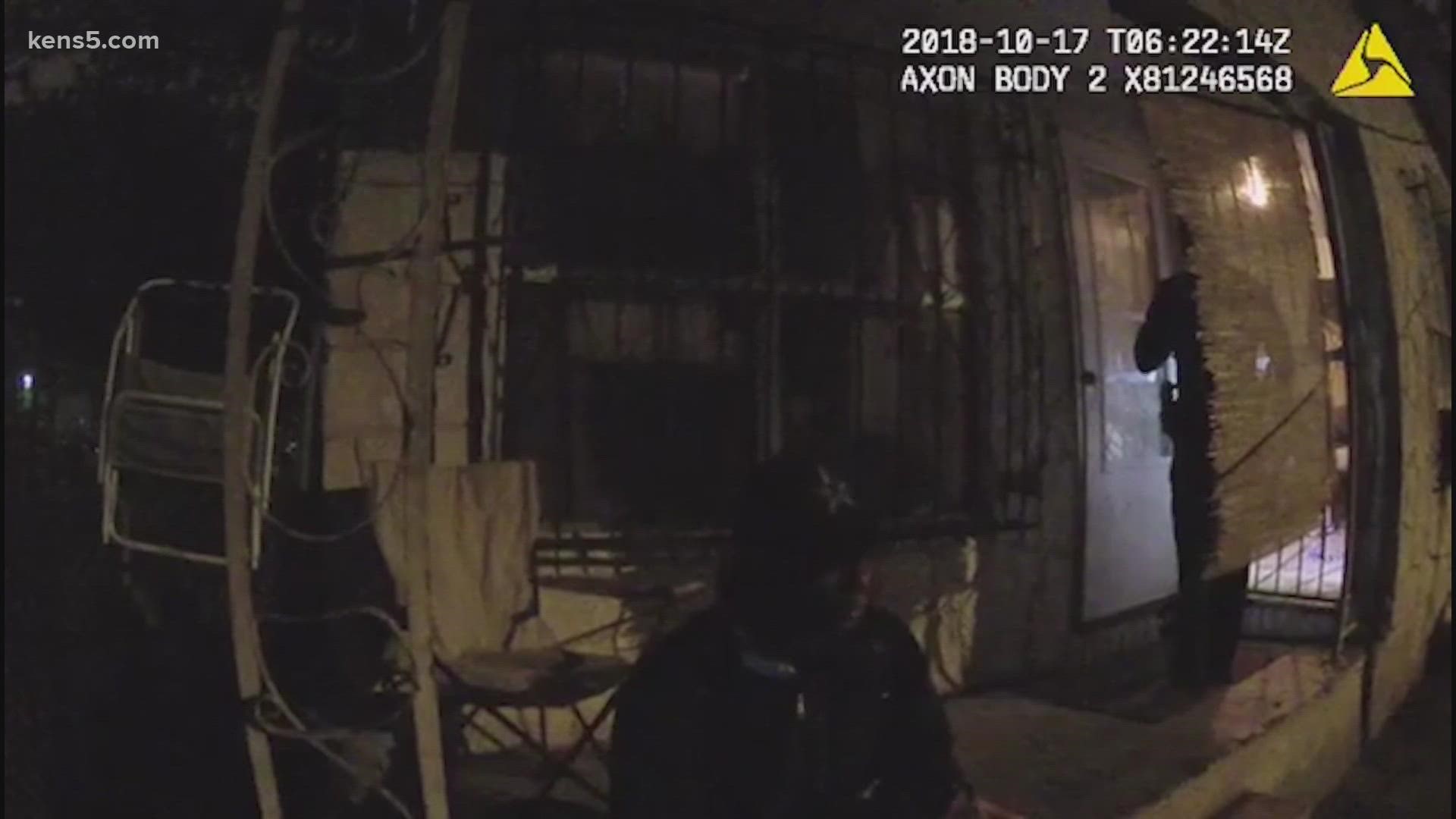SAN ANTONIO — Texas Federal Judge Jason Pulliam will decide if a case against a San Antonio police officer who shot and killed an unarmed bystander should move to a civil trial.
Officer Steve Casanova killed Charles Roundtree Jr trying to shoot his friend Davantae Snowden. The shooting happened in October 2018 at 217 Roberts Street.
Casanova and two others officers were investigating an assault claim from a soup-selling couple after 1 am. The Central patrol officer walked into the yard, acknowledged a man on the porch, pulled on a door, and knocked on a different door.
Five seconds after the door opened, the officer fired two shots into the home's living room and ran for cover. Snowden sustained an injury to the backside, and Taylor Singleton, who was in the same room, was not injured. Unarmed Roundtree got killed.
"His actions were intentional, and they were also reckless," Daryl Washington said.
The Dallas-based attorney represents the family, Snowden and Singleton, in a wrongful death suit filed against Casanova and San Antonio in 2018.
Snowden faced a felony weapons charge but got acquitted by a Bexar County jury. Police believed he had a gun in his waistband, so Casanova feared for his life. The jury did not believe that story.
Casanova went back out on the streets after a grand jury found he was not criminally responsible for Roundtree's death.
Now, he wants a judge to lift the financial threat of a civil suit off of his shoulders.
Attorney Patrick Bernal argued Casanova's motion for a summary judgment Thursday before Pulliam. The officer is seeking qualified immunity under a police investigative technique called 'Knock and Talk.'
Bernal said that's what his client's demeanor shows on body camera video before Snowden agitates the shooting.
Bernal argued Snowden forced the officer to fire his weapon and he, unfortunately, killed Roundtree.
Snowden and Singleton have said the porch had no lights, and Casanova pushed the door in after two knocks. According to previous interviews with KENS 5, the two said Casanova never identified himself as an officer.
Body camera video shows the officer knocking on the door. Two angles of the same action from his backup Officers, James Panah and Alexander Garza, support their claim. Pulliam even questioned the entrance in court.
Bernal said using 'Knock and talk' does not require an officer to announce himself.
Washington pointed out in Texas, where homeowners are allowed to defend their person and castle, an unannounced person might meet hostility upon entering someone's home.
According to Bernal, their expert enhanced the scene on the porch. They believe Snowden should have been able to identify Casanova as a policeman.
Washington said not with Snowden's vision issues which require bifocals.
"In the qualified immunity context, it is viewed from the perspective of a reasonable officer," Thad Spalding said.
Spalding is also representing Roundtree in court. He said qualified immunity means viewing the facts from a reasonable officer's perspective. And, he believes it unreasonable to believe 'Knock and talk' apply in this situation.
"I think that's a distraction from what the ultimate issue is," Spalding said. "And that's the speed with which this officer rushed into this house and drew his weapon and shot somebody."
Inquiries about the use of 'Knock and talk' to San Antonio Police and City Attorneys office yielded the following statement:
"The officers were responding to a call for service and did not serve a "no-knock warrant." Further, it's important that the public know that a "knock and talk" is a lawfully recognized practice that simply states that an officer can knock on a door and speak with the occupants if they answer. If the occupants do not answer, then the officer leaves."
Legal experts said police could not use 'Knock and talk' to avoid getting a search warrant for a crime, and the technique could not get used to force entry or be heavy-handedly entering a home.
Casanova's attorneys declined to comment for this story.
Pulliam's decision is significant for both sides. The judge said no matter how he sides, the issue would end up on appeal.

